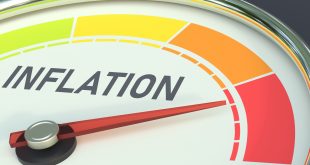In March, the Bank of England (BoE) is expected to continue raising interest rates, albeit more slowly as the globe fights off threats to the financial system. On Thursday at 12:00 GMT, the BoE will make its interest rate decision public. It’s not a “Super Thursday” because neither the governor’s news conference nor the meeting’s revised economic estimates are happening.
This Thursday, the Bank of England is set to announce a 25 basis point (bps) rate increase, bringing the main policy rate from 4.0% to 4.25%, following the crucial Federal Reserve policy meeting. It will be the eleventh consecutive increase and likely the last before the central bank takes a wait-and-see stance.
In January, the UK’s Gross Domestic Product (GDP) increased by 0.3% as opposed to the 0.1% forecast and -0.5% before. A strong economy and easing price pressures support the central bank’s decision to postpone its tightening cycle. Markets are now pricing a 62% probability of a 25 bps rate hike by the Bank of England this week.
The financial services firm Citi earlier this year predicted that Britain’s inflation rate might fall to about 2% by the end of the year, well before the general election in early 2024.
At 10.1% in January, the inflation rate significantly decreased. The Consumer Prices Index (CPI) is very near to a 40-year high and is not anticipated to decrease more considerably until the summer, despite the fact that this was the third consecutive monthly decline in the inflation rate.
The modest reduction, according to the Office for National Statistics (ONS), was caused by lower gasoline and diesel costs. The ONS said that an increase in the cost of smokes and alcoholic beverages mitigated this.
Prices for food and beverages in particular are still approaching record highs after rising by 16.8% in January. Just slightly better than the 16.9% increase in December, this is.
Consumers have suffered as a result of this month’s food shortages in UK retailers, according to recent statistics from the Office for National Statistics.
When grocers dramatically increased their prices, UK consumers that rely on supermarket bargain ranges are being stung the hardest by the cost of living crunch.
Last Monday, the European Central Bank raised interest rates by 0.5 percentage points throughout the eurozone. This was amid worries that increasing borrowing rates may trigger a chain reaction throughout a financial sector that was already reeling from a loss of trust in Credit Suisse, Switzerland’s second-largest lender.
Prime Minister Rishi Sunak pledged to halve the rate of inflation this year.
“While any fall in inflation is welcome, the fight is far from over,” Chancellor Jeremy Hunt said on Wednesday (February 22). “High inflation strangles growth and causes pain for families and businesses — that’s why we must stick to the plan to halve inflation this year, reduce debt and grow the economy.”
When inflation rises — and when wages don’t keep up — it affects the real value of pay. This means that wages don’t stretch as far as they used to.
The ONS said regular pay, excluding bonuses and considering inflation, nosedived by 4.1 per cent in the three months to June compared with a year earlier.
“The real value of pay continues to fall,” ONS director of economic statistics Darren Morgan said in January. “Excluding bonuses, it is still dropping faster than at any time since comparable records began in 2001.”
The quarterly survey conducted by the Bank of England (BoE)/ Ipsos showed on Friday that the median UK public’s expectations for inflation for the coming year dropped sharply in February.
Median public inflation expectation for coming year 3.9% in Feb vs. 4.8% in Nov.Median public inflation expectation for 1-2 years 3.0% in Feb vs. 3.4% in Nov.
Median public inflation expectation for 5 years 3.0% in Feb vs. 3.3% in Nov.
By raising rates by 25 basis points, the BoE will follow the Federal Reserve and the European Central Bank (ECB) in sticking to their plans, boosting market confidence. Yet, the GBP/USD pair may suffer if the statement and the meeting minutes hint to a potential halt at the next meeting. However, the losses could be capped by the persistent risk tone and the US Dollar price action.
The data will be taken into consideration by the BOE when making its split-second decision on Thursday over another rate hike. Following last week’s market tremors caused by issues at Silicon Valley Bank and Credit Suisse Group AG, expectations for a quarter-point increase from the current 4% quickly diminished.
 Noor Trends News, Technical Analysis, Educational Tools and Recommendations
Noor Trends News, Technical Analysis, Educational Tools and Recommendations





